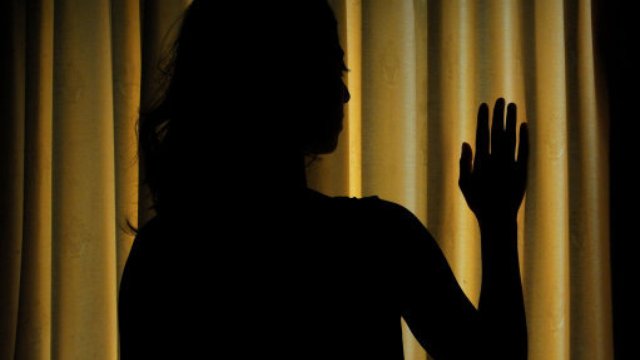West Midlands Mum Becomes First Person To Be Convicted Of Forced Marriage
22 May 2018, 16:18 | Updated: 22 May 2018, 16:20

A woman from the West Midlands who took her 17-year-old daughter to Pakistan has been found guilty of forced marriage charges.
The woman was found guilty following a trial at Birmingham Crown Court, where a jury heard how the victim had sobbed as she was married to a male relative 16 years her senior.
Years earlier, the man had taken the girl's virginity after a marriage contract was entered into against the girl's will.
The then 13-year-old had to undergo an abortion on returning to the UK, with her GP reporting his concerns to social services.
It is the first time a forced marriage case of this kind has been successfully prosecuted in a criminal court in England, with the mother convicted of actively deceiving the girl in order to convince her to travel.
Jurors heard how as the girl had approached her 18th birthday, she was tricked by her mother into going to Pakistan on what she believed was a family holiday.
The mother, who cannot be named for legal reasons to protect the identity of the victim, was convicted of deceiving the victim to go to Pakistan, in order to enter into a false marriage, forced marriage and perjury, after she later lied about the incident in the High Court.
Giving evidence during the trial, the girl told how wedding preparations went ahead despite her objections.
The couple were then married in September 2016, after she had celebrated her 18th birthday.
The teenager had described how she was taken to get ready for the ceremony, and there an imam gave her papers to sign and asked if she wanted to get married.
The victim - under pressure from her mother - had to say "I do" or "I accept" three times, before signing.
Jurors heard the complainant recall how she cried to her mother, who continued leading her by the arm to meet her husband-to-be, and then put on her ring.
She said: "I didn't want to get married to him."
Back in the UK, after concerns were raised by the authorities, the girl's mother was summonsed to the High Court, and there lied on oath, stating that her daughter had not been married.
Jurors also heard how years earlier, following her abortion, the teenager had turned to drink and drugs.
After a referral to children's services about the pregnancy, her mother "made all the right noises" according to prosecutors, claiming her daughter and the man were just "two teenagers who had sneakily had sex".
Opening the case, prosecutor Deborah Gould said the victim was "a young girl who has been let down badly by her mother, whose love and attention she craves".
As the verdicts were read, the defendant appeared shocked and was remanded in custody for sentencing on Wednesday, as her daughter watched from the public gallery.
Judge Patrick Thomas QC told the jury the adjournment was appropriate as the case was "entirely novel", with no other relevant case law to rely upon.
The girl was returned to the UK with the assistance of the Home Office, with police and social workers informed what had happened, leading to her mother's arrest in January last year.
Following conviction, Elaine Radway, from the Crown Prosecution Service, said: "Forcing someone into marriage against their wishes is a criminal offence, and a breach of their human rights.
"As this prosecution demonstrates, the CPS will work with partner agencies to identify and prosecute those who coerce, control, dominate or exploit a victim to force them into marriage.
"It is thanks to the brave testimony of the victim that this serious offending was uncovered and that there was sufficient evidence to secure the conviction today."
Superintendent Sally Holmes, from West Midlands Police's public protection unit, said it had been a complex investigation, with officers travelling to Pakistan to gather evidence.
She said: "Where the difficulty has been greatest is obviously for the victim.
"She's been incredibly brave coming forward, and reporting this to us and I think her bravery has absolutely to be acknowledged."
She added: "One of the difficulties with these cases, is that ultimately, children love their parents and the last thing they often want to do is criminalise them.
"In coming forward, that is ultimately what they may find themselves doing.
"The reason why they have to make that difficult decision and come forward, is often to protect themselves and siblings, and obviously to do the right thing and to protect other members of the community.
"The ambition is always to prevent the crime, rather than react afterwards."






